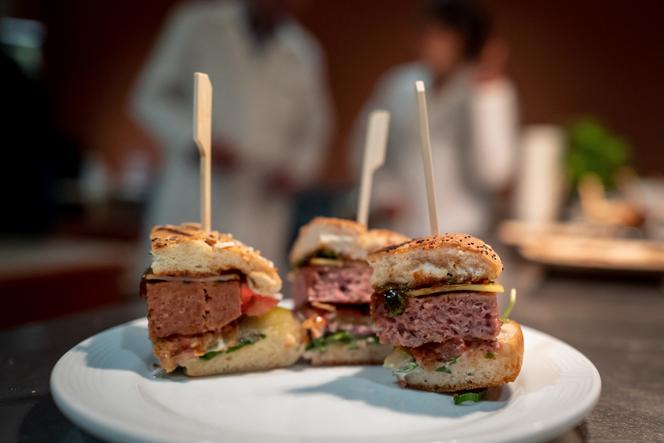


The semantic battle over plant-based steaks and meatballs has been reignited. One year ago the Conseil d’État suspended a first decree that was published in the Journal Officiel, at the end of June 2022 banning the use of butcher’s terms to designate plant-based products. The French government has now notified the European Commission of a new text on August 23, which the news site Contexte published on Thursday, August 31.
In this draft decree, the government has taken into account the comments of the Conseil d’État, which had judged that the first text was too vague. It targeted, without further clarification, "terminology specific to butchered meats, prepared meat and pork products or fish." The new text aims to be exhaustive this time. It is signed by Prime Minister Elisabeth Borne, Minister for the Economy and Finance Bruno Le Maire, and Minister for Agriculture Marc Fesneau. It includes a list of 21 terms "whose use is prohibited for the designation of foodstuffs containing plant proteins." While vetoing the terms "paleron" (chuck), "tendron," "skirt steak" or "bavette" (flank steak) is unlikely to disrupt the meat substitute sector, vetoing the terms "steak," "ham" or "cutlet" would be of greater consequence.
The draft decree also includes a second list of around a hundred terms designating products that may contain only a marginal amount of plant proteins (from 0.5% to 5% authorized, depending on the category). The list includes "bacon," "boudin," "lardon," "nugget," "sausage," and so on. If the decree were to be applied, products currently marketed as "lardons végétaux" (plant-based bacon), "plant-based hot dogs" or "plant-based rillettes" would have to change their names.
The market for alternative proteins remains a minority one today, with sales estimated at 425 million euros in 2022 in France (mainly driven by plant-based beverages), but meat substitute lines have expanded and diversified in recent years. Worldwide, the meat substitute sector represents 1% of the market and, after massive investment, has suffered setbacks. However, given the climatic and health challenges of reducing meat consumption in developed countries, these alternatives remain one of the ways in which we can green our plates.
"For consumers, substitutes allow them to change their diet without having to change the way they cook," explained Romain Espinosa, an economics researcher at the CNRS (Centre International de Recherche sur l’Environnement et le Développement [International Research Center on Environment and Development]). But the French are still wary of these alternative, high-priced proteins, some of which are highly processed. "In France, the attachment to meat is very strong and there is an aversion to processed products," noted the economist.
You have 47.54% of this article left to read. The rest is for subscribers only.
